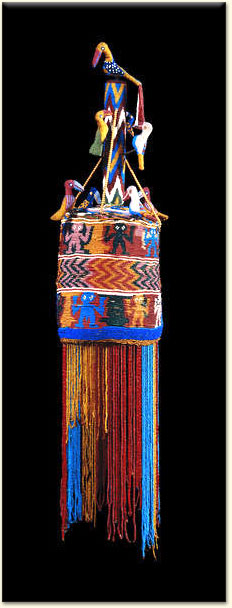The Tower of Babel
Arrogance is the absence of Irony.
Humility is the acceptance of Irony.
A Tale of Irony: The Tower of Babel
When mankind wished to build a tower to reach the heavens where God was, their project was thrown down, their unity was destroyed forever, and they were driven out on the face of the eareth, speaking in mutually incomprehensible tongues.
Arrogance could not conceive...
Arrogant hearts could not believe that they were not God's equals, and that they were not worthy of a place in heaven, and that they would not succeed.
Irony: instead of great success, there is abject failure.
Irony: the overturning of events; good becomes bad, the sweet goes sour, the joy becomes tears, the gold becomes a gilded cage...
So far, the 21st century has been our century of Irony: our sense of inviolable security turned to fears, military arrogance turned to desperate struggle, the greatest economy in the world falling into ruin...
The Abrahamic religions are filled with paradox, irony, and contradiction.
We have hitherto seen this as (1) a proof to unbelievers of the falsity of religion, or (2) a mystery to believers, or (3) an embarrasment best ignored.
Assuming the religious geniuses were not fools, and were up to something a bit more interesting than spouting nonsense, what was the point?
The point is not that life is rich and complex; we know it already. I do not need Jesus, Moses, nor the Prophet to inform me of that.
The point is not that life is inherently irrational, illogical, and chaotic.
For there is no point.
If we are dealing with conscious beings who propound these religions, and these beings speak in paradox, irony, and contradiction, it must be very obvious that if there were a "point", there would very soon be an antithetical or ironical "point": if you love peace, prepare for war; point "peace", antithesis "war".
We wonder about paradox, irony, and contradiction when we withdraw from the run of events and begin discoursing about the way things are; are they irrational, are they chaotic, are there any lawlike rules? We wonder when we finish the race, when we are out of the running: ekdromema and are sitting on the sidelines, talking about the race afterwards.
The genius of religion tells us that we are always in the running: endromema.
The ideals of religion are impossible to us so that we may never attain them, at least to our way of thinking. The race of religious ideals is the perfect Achilles and Tortoise race, where Achilles will never catch up to the tortoise with a head start.
Achilles and the Tortoise is one of Zeno's Paradoxes.
The point is:
Religion is living life as a process.
We are always writing and re-writing the screenplay, making it better and better and tighter and tighter, for that time when the Director calls for it.
When we are called for our screenplay to take over the direction of this film, it has to be "good", and good enough to deal with future paradoxes and ironies.
If our script is bad, heaven help the future, for we here on earth are busy sowing the wind, leaving it to our children to reap the whirlwind.
-----
-----
(for a brief outside discussion on religious contradiction and its discontents, see here: http://sidschwab.blogspot.com/2009/10/namaste.html )


















No comments:
Post a Comment